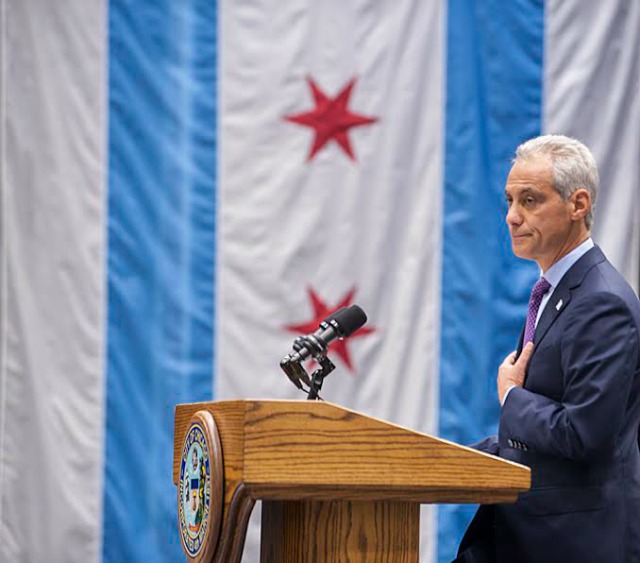Chicago's Plan For Municipal IDs For Undocumented Immigrants Is A Go
By Stephen Gossett in News on Apr 19, 2017 8:30PM

Rahm Emanuel / Photo: Aaron Cynic
Plenty of logistical details still remain, but Mayor Rahm Emanuel's plan to implement a program to create municipal identification cards for undocumented immigrants is officially a go.
The measure, which was overwhelming approved by City Council on Wednesday, 44-4, clears the path for ID cards that will allow undocumented residents access to city services, cultural institutions and other benefits. One million dollars was allocated under the ordinance to the office of City Clerk Anna Valencia to begin the program. Those funds were previously allocated for this purpose under the mayor's budget.
The Sun Times reports that the ordinance takes cues from San Francisco's policy, in that the city looks to require "minimal information" in order to access an ID card, and the New York City's program in terms of proof of identity.
“New York did it on a point system. So four points to prove your identity and be able to get a municipal ID card. That’s something we’re looking at as part of a point system to prove the identity of the person. We’re also going to have our people trained just like the Secretary of State’s office is trained to authenticate the material."
The city will not however mirror New York City's approach when it comes to document retention, officials have stressed. The mayor's office said the city "will not retain copies of applicants' personal information."
"We are a welcoming city," Rahm said on Wednesday, via the Trib. "Everybody here has talked about helping bring someone out of the shadows, to help them get on with their lives."
Emanuel on ID: "This is our moral responsibility. And I would ask everybody to think about the people they've met along the way"
— Lauren Chooljian (@laurenchooljian) April 19, 2017
The ordinance will also allow cards for the formerly incarcerated and homeless people. The four alderman who voted against the measure were Ald. Anthony Beale (9th), David Moore (17th), Nick Sposato (38th) and Anthony Napolitano (41st). Beale reportedly argued that, partially due to cost, that such initiatives should be undertaken at the state government level.